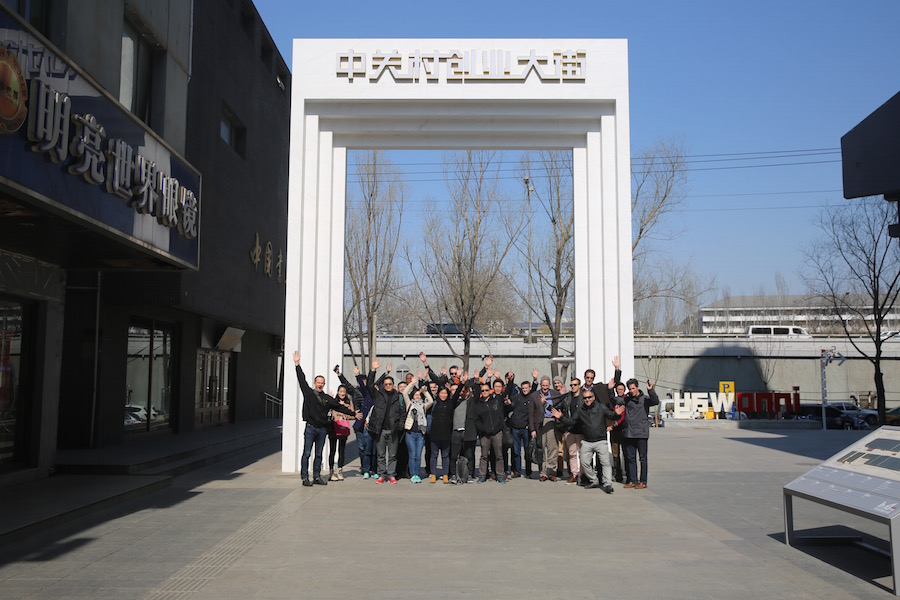Recent China trip reveals a wealth of opportunities for muru-D startups

Recent China trip reveals a wealth of opportunities for muru-D startups
It has only been a few weeks that the current muru-D accelerator class have been back in the country after their recent trip to China and already muru-D have confirmed that some of the founders have had opportunities arise that will mean a select few of the founders will actually be remaining in China until demo day early next month.
As I have stated before, there are currently over 7 billion humans on earth, and over half of that population sits directly above Australia on the map. Asia is full of opportunities for expanding Australian startups, so the ‘trend’ in startup land that we head straight to the US market to grow and scale our ventures instead of looking in our own region first has never made sense to me.
Last month majority of the muru-D startup second intake boarded a plane and visited a number of cities in China to scope out opportunities, meet investors and make some new important connections within the region. One of the cities included Shenzhen, which already has a very proactive relationship with Australia, holding government sponsored pitching competitions and establishing strong partnerships with companies like Pozible to encourage more local entrepreneurs to engage with manufacturers and talent across the region, especially in the Internet of Things space.
Rachel Bui from muru-D recently shared some reflections and valuable in-depth information on the nine day trip that took the team of entrepreneurs on a journey across not only Shenzhen but Shanghai and Beijing on the muru-D blog.
Last year, we took our first cohort to the USA. This year, China was our chosen destination with the muru-D crew and our mentors going on a nine day trip to Shanghai, Shenzhen and Beijing.
Shanghai
Our first stop was in Shanghai. We spent our first day at the People Squared’s Hero Centre doing group activities, which included briefing sessions from Cooleys (legal) and AusTrade. This was followed by a tour of P2’s Hero Centre, a 1500sqm co-working space that accommodates 50+ startups including Xinchejian (China’s first makerspace), Chinnaccelerator and Pozible, Australia’s crowdfunding platform founded by Rick Chen.
In the evening, we hosted a joint networking event with Chinaccelerator whose 7th startup batch had started earlier that week. The event was opened by the AusTrade Shanghai Commissioner, Karen Surmon, who gave a fabulous speech about Australia’s innovation so far. Our startups then provided the diverse audience of partners, mentors and angel investors an update on their progress and why they’re targeting the China market. Jemma Xu, CEO of Tripalocal, spoke in fluent mandarin to the audience.
The following morning involved a group discussion with a well-connected angel investor in Shanghai, who spoke about China’s history and economic progress, as well as market trends, the local Chinese startup ecosystem and foreign players.
The rest of the trip included individual meetings with logistic, education and sports companies.
Shenzhen
Arriving in Shenzhen made me feel like I was back in Australia. It is a much greener city, less populated than Shanghai and Beijing. Our first day in Shenzhen involved a tour of the Qianhai Expo Centre where we were briefed about the city itself and its commitment to help startups through various incentive programs. Next, we visited a youth entrepreneurship technology park. It seems like the next property boom in China will be made up of places such as these — many property development groups and local district governments hustling to attract foreigners. Still, with a population of 1.3 billion, I have no doubts that over the next couple of years, as the startup ecosystem continues to grow, these places will be filled with people doing innovative things!
After the tech park visit, we were taken to the Tencent HQ, the company that created QQ and WeChat. It was amazing to learn about the growth of Tencent and how it managed to continue to innovate over the years. WeChat is the ubiquitous platform in China and it’s almost impossible to communicate without it. Everyone participating in the trip was advised beforehand to install WeChat and it proved extremely useful for coordination, broadcasting and messaging.
The day finished with another networking night including a full house of representatives from the various Shenzhen district governments, as well as businessmen and investors.
The second day involved more tours of the various makerspaces and the arts precinct, followed by individual meetings. Some people also decided to make a quick stop in Hong Kong, given its proximity.
Overall, Shenzhen is an exciting place with a very promising future for anyone in the hardware / IoT space. A special thanks to the Shenzhen Government for helping us with the coordination of tours and events!
Beijing
Beijing is the mecca of the Chinese startup scene. Our first day in Beijing involved a group visit to Innovation Works (also known as the YCombinator of China) where we received a briefing session about the Beijing startup scene. Innovation Works is located in Zhongguancun, North West of the Chinese capital. Zhongguancun, Haidian is the birthplace of Xiaomi and many other famous startups. Companies such as Microsoft and Google are also located in Haidian, along with the top universities such as Peking University and Tsinghua University.
After Innovation Works, we visited Innoway. As its name suggests, it is the innovation street in Zhongguancun where the famous Garage ‘Cheku’ Cafe is located along with various other startup cafes and co-working spaces. Binggo Cafe kindly hosted us for lunch and the muru-D startups had the opportunity to meet some of the local Chinese tech startups and leaders. Binggo Cafe previously hosted Lei Jun, the founder of Xiaomi and it just so happened that they were hosting Startup Weekend Beijing while we were there.
That evening, some of the muru-D crew joined the Chinaccelerator crew at the 8×8 event at Tech Temple in Sanlitun, Chaoyang, while others attended individual group meetings. Chaoyang is also a growing startup hub in Beijing, containing co-working spaces like Tech Temple and companies such as RenRen.
The following day we ventured further east to Factory 798 and visited Technode, a media company also responsible for TechCrunch China. muru-D hosted a networking event there with an audience comprising different industries including Telstra China representatives, startup ecosystem leaders and investors.
In the evening, the Lean Startup Beijing group hosted a startup community dinner for us in Sanlitan, Chaoyang. The group was so big that everyone ended up scattered across different restaurants.
As part of the Chinese program at muru-D, in addition to the tour, the accelerator will be launching a China based pitching competition that will take place in the cities of Chengdu, Shenzhen, Wunan, Shanghai and Beijing. This will see Chinese startups pitching to Telstra and a muru-D panel, and the winners (possibly even the top two) will be offered a place in the upcoming class three intake to take part in the muru-D accelerator later this year.
Based on recent interviews and discussions that Startup Daily has had with the current muru-D class the trip has resulted in a number of things such as new investors coming on board, lucrative contracts and rapid growth opportunities – many of these activities are still in play so it will be interesting to see over the next couple of weeks leading up to demo night who closes the deals they are working on and whether or not any of the opportunities will require those startups to make a complete relocation to China.




Join The Discussion